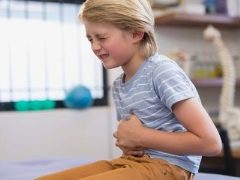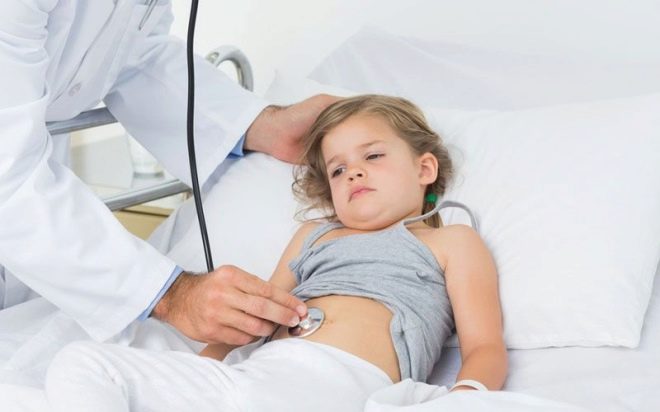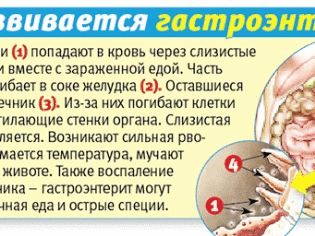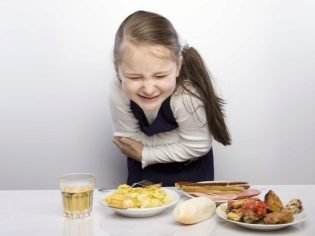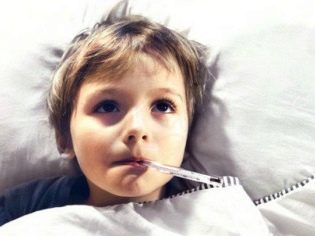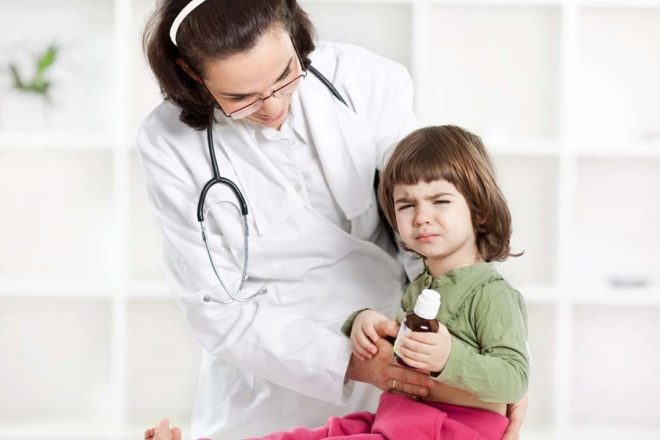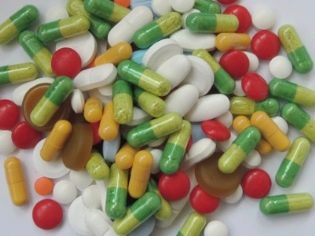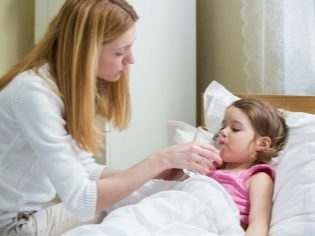Gastroenteritis in children: from symptoms to treatment
Gastroenteritis is a very insidious disease that should not be underestimated. In childhood, it can lead to dehydration and even death, and therefore it is important for parents to consider and recognize the symptoms of pathology in time and understand well why the doctor prescribed a particular treatment.
What it is?
Gastroenteritis is an inflammatory process that occurs in the stomach and small intestine. It can be caused by bacteria, viruses, parasites that infect the mucous membranes of these important sections of the gastrointestinal tract. As a result of this inflammation, a variety of processes that are considered normal for the gastrointestinal tract are disturbed - secretion, transport functions, metabolic changes occur.
In childhood, when hands are not removed from the mouth, and the rules of hygiene are nothing more than empty words, gastroenteritis occurs most frequently.. At the same time, the overwhelming majority with this diagnosis are children of preschool and primary school age.
According to some official medical statistics, gastroenteritis in children ranks second after the ARVI so common in childhood.
The illness can be acute or chronic, and both of these forms have significant differences and require a different approach. The medical examination, which in recent years has been conducted for schoolchildren, shows a completely depressing picture: in one form or another (more often in chronic) gastroenteritis is found in more than half of children of middle and older school age.
The efforts of doctors, nutritionists, propagandists of healthy nutrition and lifestyle encounter stubborn facts: every year more and more new strains of pathogens appear that can cause inflammation of the stomach and small intestine. New strains are resistant to antibiotics, which were used to treat earlier, and are not so effective or help at all.. And fast-food advertising and the abundance of harmful food additives exacerbate the prevalence of the disease, because the food from the fast-food restaurant is one of the most desired for modern children and adolescents.
The fat point in the history of children's gastroenteritis, which is found in almost every second child, is put by parents' beliefs about the usefulness of self-medication and the treatment of any ailments at home with folk remedies, or the uncontrolled and irrational intake of medicines.
The reasons
The most common acute form of gastroenteritis in infants, preschoolers, or schoolchildren develops because of the development of an infection, and bacteria, some viruses, protozoa, are the most aggressive against the child's gastrointestinal tract. Depending on the causative agent of the disease, gastroenteritis such as norovirus, adenovirus, salmonella, amebic, etc., is isolated. There are also rare forms of the disease, the etiology of which is not completely clear, for example, eosinophilic gastroenteritis, in which, according to unclear factors, eosinophils begin to be deposited on the walls of the stomach and intestines.
In addition to pathogenic agents and microorganisms that can get into the digestive tract and cause disease, inflammation can also have a non-infectious origin: mucous membranes can be affected by the use of aggressive substances, chemical compounds, alcohol, drugs, as well as due to radiation.
Malnutrition with acute and fatty predominance can cause acute gastroenteritis. Allergic inflammation develops less frequently if the child consumes a strong allergen, for which he has an individual severe intolerance. Among all the causes of infectious is the most common.
Violations of hygiene rules are considered as predisposing factors for illness. (there is no habit of washing hands), because bacteria and enteroviruses are transmitted most often by the faecal-oral, contact and food route, as well as violations of the rules of healthy eating. Also a favorable background for the disease is low acidity of gastric juice.
The chronic form of the disease in children is only sometimes an acute complication, most often caused by the well-known on television commercials the bacterium Helicobacter pylori. These bacteria are very resistant to the aggressive acidic environment of the gastric juice, and if in the stomach many bacteria and viruses simply cannot survive, not to mention reproduction, then this is not about Helicobacter pylori. These representatives of the bacterial world have a high degree of protection against acid. As these organisms develop, the acidity of the gastric juice increases, and the condition of the mucous membranes is damaged.
Types of disease
Ailment in medicine has a clear classification and is divided into acute and chronic.
The disease, acute, may have the following degrees:
the first - episodic diarrhea, infrequent repetition of vomiting, body temperature is normal, no signs of dehydration;
the second - loose stools and vomiting are repeated up to 10 times a day, there are initial signs of dehydration, the body temperature is increased to 38.0 degrees and slightly higher;
the third - significant or severe dehydration, high fever, signs of loss of consciousness, delirium.
If we are talking about chronic gastroenteritis, the classification here is more extended, since it takes into account both the causative factor and the severity of symptoms. Chronic gastroenteritis can be infectious, alimentary (caused by harmful chemicals).
According to the degree of damage to the mucous membrane, they distinguish the surface form of the disease, in which the villi of the digestive tract are not affected, inflammatory without atrophic changes of the villi and with atrophic changes.
Signs of
Symptoms and manifestations of acute gastroenteritis are always characterized by rapid and rapid development of processes. Subsequently, the doctor in the history of the disease indicates the local status - the epigastric region, since it is with it that everything begins. Usually, the disease starts with abundant and frequent vomiting, diarrhea, and repeated. After a few hours, the baby’s condition worsens - the temperature rises. From the moment of infection, if they talk about viral or bacterial gastroenteritis, it takes from three hours to two days, this is the incubation period.
According to the observations of doctors, the first symptom is usually diarrhea, and only then other signs join it. If the "culprit" of inflammation was a bacterium, then the course of the disease is much more severe than with viral gastroenteritis. Since bacteria produce toxins, during bacterial infection, complaints of severe abdominal pain are most often added to the symptoms.
For all their cunning, the viruses are not so “cruel” and usually do not lead to pain. But a runny nose, cough, headache can be observed. Both viral and bacterial forms of the disease require the introduction of quarantine - contact with other children during the acute period is prohibited.
The younger the sick child, the higher the likelihood that the disease will be severe, because the baby's body is very easy to bring to dehydration, vomiting and diarrhea will cope well with this task. therefore parents should be careful that dehydration does not occur. The fact that there is dehydration, tell the skin condition - it becomes more dry, inelastic, the child is tormented by thirst, he is very weak, his eyes are hollow, it seems that he has lost much weight after the onset of the disease. When dehydration can begin convulsive syndrome, rapid heartbeat and pulse, the child's pressure decreases. In severe cases, loss of consciousness may occur. Even with the initial dehydration and dehydration of moderate severity, the amount of urine excreted by the child is significantly reduced.
Children with chronic gastroenteritis often suffer from emaciation, underweight, they exfoliate their nails and their hair breaks, as calcium absorption in the affected gastrointestinal tract is impaired. They are more irritated, may suffer from insomnia. Abdominal pain usually begins one and a half hours after eating, children suffer belching and often complain of nausea.
A patient can live in remission for quite a long time. Chronic gastroenteritis usually worsens in the spring and autumn, as well as after the holidays with an abundant feast, if the child or adolescent grossly violates the rules of therapeutic nutrition. Each attack lasts about 10 days.
What to do and how is the diagnosis?
If the child develops an acute form, it is necessary to call an ambulance without waiting for dehydration, and go to the infectious diseases hospital, where simple analyzes of microscopic examination of vomitus and feces will show which pathogen could cause pathology. Bacteriological and virological laboratory methods will provide comprehensive information. And only after that the doctor has the full right to make the child an accurate diagnosis.
Important! Parents should know that “by eye” such a diagnosis as gastroenteritis is not made to children! This is the wrong approach.
Sometimes the causative agent is identified for quite a long time - up to 10 days; during all this time the child will receive supportive treatment aimed at preventing dehydration.
When a child has a chronic disease, they examine the condition of the gastric mucosa and the beginning of the small intestine, a biopsy of the affected fragments can be performed, which will help to know for sure whether the villi are atrophied or not. For the detection of Helicobacterium PCR diagnostics.
In any form, abdominal ultrasound may be prescribed.
How to treat?
It is possible to treat gastroenteritis in children both in hospital and at home. It all depends on the age of the patient and the severity of his illness. Children under 2 years of age are considered preferable to treat in an infectious diseases hospital., to keep under control the situation with possible dehydration. In chronic illness in the acute stage, treatment is carried out in the gastroenterology department.
The most important treatment for the child are measures to restore the water-salt balance. For this abundant warm drink recommended, means for rehydration (“Regidron”, “Humana Electrolyte”). If you consider how much the child is sick, how much he wrote, he lost so much fluid with diarrhea, you should be given a drink in an amount that is one and a half times higher than the costs.
In infectious bacterial inflammation of the stomach and small intestine, antibiotics are prescribed that are active against a specific pathogen. If the disease is caused by a virus, antibiotics are prohibited.
Children are recommended to receive enterosorbents (Enterosgel, activated carbon and others).
Chronic forms require an individual approach - the means to reduce or increase the acidity of the stomach, enzymes, enterosorbents, physiotherapy are shown.
For all forms, a special diet is considered mandatory: you can eat boiled, baked, stew, fried and spicy dishes, smoked meats, pickles, and carbonated drinks are excluded. The menu should not be chocolate, too sour fruits and berries.
If the treatment is started on time, the small patient accepts all the drugs prescribed by the doctor, then the prognosis is assessed as favorable. With a chronic illness, the child should be in the dispensary of a gastroenterologist.
Disease prevention includes the responsible attitude of the child and parents to hygiene, as well as monitoring the quality of food and water, and proper heat treatment of products.
Opinion of Dr. Komarovsky
Famous pediatrician Yevgeny Komarovsky classifies children's gastroenteritis in what parents routinely call the term "intestinal infections". He urges parents not to blame themselves for the fact that the child is sick, because often even the most clean parents have children catch enteroviruses or disease-causing bacteria from food.
Yevgeny Komarovsky urges not to rely too much on medicines, because within 4-5 days the child’s immunity will surely give an immune response and begin to stabilize the body’s work. The task of parents is to let the kid hold out these days without dehydration..
The tips here are simple: water at any cost - with water, saline, tea, compote.
At high temperatures, give “Paracetamol”, but only after the thermometer shows above 38.0 degrees. The temperature below is important for more effective work of immunity, it is not necessary to shoot it down.
In the first days of illness, Komarovsky recommends not feeding the child, if it is not asking for it itself. Excessive load on the digestive organs is now useless. But if the baby is very thin, then it is still necessary to feed the child with something light, for example, sparse porridge, broth, kissel.
A few helpful tips from Komarovsky help moms to behave with children's gastroenteritis correctly.
If the baby is sick, control urination the diaper will help - it must be weighed on the most common electronic kitchen scales before the change. This will give a more or less accurate idea of how much the baby has peed.
At high temperatures in a child with signs of dehydration, the mucous membranes, including respiratory organs, also lose moisture. Drinking plenty of water will be an excellent means of prevention. such a dangerous complication as pneumonia.
If the home first aid kit is missing means for rehydration, you need to prepare them yourself with a prescription who: per liter of water will need two large spoons of sugar, a teaspoon of salt and a teaspoon of soda. This solution is warm and will help restore the water-salt balance.
It is necessary to “get out” of the disease correctly: the lack of enzymes can be very dangerous after acute gastroenteritis, therefore children should be given food only allowed by the doctor and in very small portions.
In general, with the right approach, timely treatment for medical help and lack of desire to self-medicate with gastroenteritis, the child manages to cope, according to reviews, rather quickly and efficiently.
In the next video, Dr. Komarovsky tells in detail about the intestinal infection in children.
